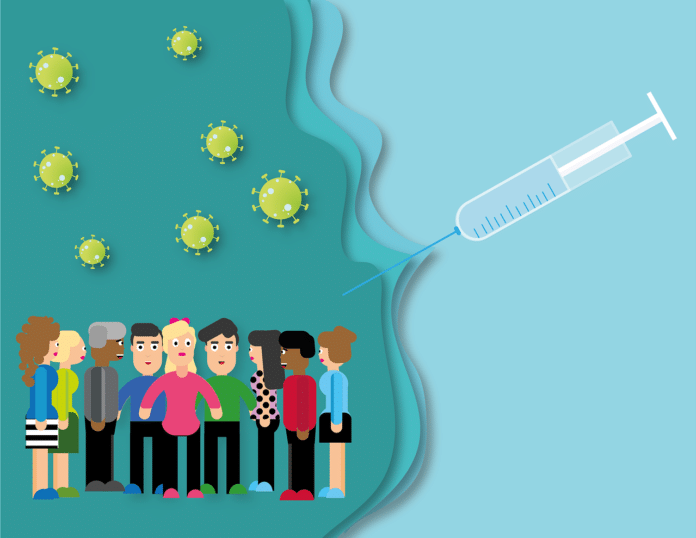Till now, only two million Americans have been vaccinated under the coronavirus vaccine distribution program. Although the US Centres for Disease Control and Prevention has made a plan with four different phases to roll out the vaccine to the majority, the process has been very slow.
In the midst of distributing the vaccines, a number of surveys have been held to know more about the general public’s opinion on getting the coronavirus shot. According to initial reports by the Kaiser Family Foundation (KFF), only sixty-three percent of Americans were willing to get the vaccine.
While sixty-three percent may seem enough, it is not enough to achieve herd immunity. Experts state that getting at least eighty to ninety percent of the population vaccinated is fundamental in achieving widespread immunity.
This means that even if as many as sixty percent of the population gets a coronavirus shot, it still would not be enough to end the coronavirus pandemic. However, this survey was conducted in September prior to vaccine approvals.
A new survey conducted by KFF after both Moderna and Pfizer vaccines received Emergency Use Authorizations (EUA) by the Food and Drug Administration in December showed that the percentage of people willing to get the vaccine increased to seventy-one percent.
RELATED: Should Children Get the Coronavirus Vaccine?
This shows that attitudes regarding vaccines may be changing positively and more people may get a shot. This, in turn, will help in ending the ongoing crisis before the summer of this year, as said by Dr. Anthoy Fauci.
For this to happen, it is important to roll out the vaccines at a faster speed across the country. People should also get the vaccine as soon as they become available. However, the concern regarding resistance to get the coronavirus vaccine still exists.
Even if the percentage of people willing to get the vaccine has risen, around one in four Americans is still hesitant to get it.
Out of the people who do not want to get vaccinated, thirty-six percent are people between the ages of thirty to forty-nine, thirty-five percent are Black-American adults, forty-two percent self-proclaimed republicans, and thirty-five percent are residents of rural areas.
Additionally, there is significant resistance even in at-risk groups that are part of early coronavirus programs by the CDC. For example, one-third of the essential workers are not willing to get vaccinated.
Health experts explain that resistance is a result of a number of factors including the politicization of vaccines due to the presidential elections. Additionally, the technology used in both vaccines is relatively new and expected to worry people about possible adverse effects.
The only solution to this issue is creating awareness regarding the positive outcomes of the coronavirus vaccine so that more people know that getting a shot will not only protect them but their families and communities.
It is also important to use appropriate language and way of addressing awareness initiatives and campaigns as well as acknowledge legitimate fears about the safety of vaccines.
In accordance with experts, fear and anxiety about getting the shot are normal in every health crisis and can only be resolved by addressing them in a positive way.




